

Arduíno Colassanti
Born: February 14, 1936
Died: February 21, 2014
in Livorno, Italy
Died: February 21, 2014
in Livorno, Italy
Arduíno Colassanti (15 February 1936 – 22 February 2014) was an Italian-born Brazilian actor. With a 40-year span, Colassanti's mainly associated with films made during the 1960s an 1970s, under the Cinema Novo (Brazilian New Wave) movement. He's known for portraing the titular frenchman in 1971s "Como Era Gostoso o Meu Francês" (How Tasty Was My Little Frenchman).
Seen as one of the main leading men of Cinema Novo by his distinguishable blond hair and blue eyes, during his career Colassanti was directed by filmmakers such as Nelson Pereira dos Santos, Leon Hirszman, Walter Lima Jr., Joaquim Pedro de Andrade, Tereza Trautman and Luiz Carlos Lacerda.
Born in Livorno, Italy, Colassanti was also a surfer and an pioneer in the early steps of aquatic photography in Brazil. He spent his twillight years in the city of Niterói, where he passed and was buried in 2014.
Seen as one of the main leading men of Cinema Novo by his distinguishable blond hair and blue eyes, during his career Colassanti was directed by filmmakers such as Nelson Pereira dos Santos, Leon Hirszman, Walter Lima Jr., Joaquim Pedro de Andrade, Tereza Trautman and Luiz Carlos Lacerda.
Born in Livorno, Italy, Colassanti was also a surfer and an pioneer in the early steps of aquatic photography in Brazil. He spent his twillight years in the city of Niterói, where he passed and was buried in 2014.
Movies for Arduíno Colassanti...


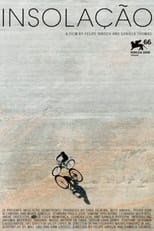
Title: Sunstroke
Character: Homem do Café
Released: March 26, 2010
Type: Movie
In an empty city, scorched by the sun, the young and old confuse the fever of sunstroke with the delicate birth of passion. Like ghosts, they hover around buildings and endless flatlands in search of the ever elusive love. Inspired by 19th century Russian short stories, the plots weave and unravel together in the improbable city of Brasilia – a distorted mirror-image of the Soviet utopia – located in the heart of the Brazilian desert.


Title: Xuxa and The Treasure of the Lost City
Character: Chefe dos Selvagens
Released: December 10, 2004
Type: Movie
Deep in the Amazon rain forest, there is a lost subterranean city. The place was built by Vikings who crossed the Atlantic Ocean and ventured up the Amazon River, and shelters a mysterious treasure. In order to find the secret location, Bárbara and the children Riacho and Manhã will have to face many challenges. Vicious snakes and dangerous pendulum blades are only the beginning of our heroes' adventures.


Title: Lara
Character: Pescador
Released: August 20, 2002
Type: Movie
The life of Brazilian actress Odete Lara, muse of the movement called Cinema Novo in Brazil, who exchanged stardom for a quiet and religious life.

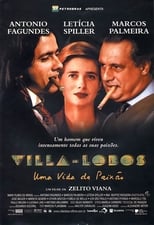
Title: Villa-Lobos: A Life of Passion
Character: Parceiro de Bilhar - Rio
Released: April 21, 2000
Type: Movie
The film tells the story of an intuitive, adventurous man who loved his country and being Brazilian. This man fought to be loyal to himself. His music is a transparent portrait of his genius, intuition, freedom, adventure and passion for Brazil.


Title: Bela Donna
Character: Capitão
Released: August 14, 1998
Type: Movie
American couple move to the State of Ceará, Brazil, in the 1930s. The husband is looking for oil. His beautiful wife, Donna, soon falls in love with a rude but charming fisherman. The forbidden romance may destroy her marriage and upset the morals of the small village where they live.

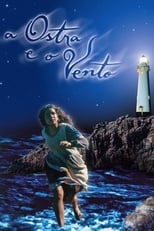
Title: The Oyster and the Wind
Character: Magari
Released: October 17, 1997
Type: Movie
A young girl named Marcela lives with her dad, Jose, a lighthouse keeper, and old Daniel on an island. The only contact the girl has with the world outside her home is by a boat with four sailors that pays a visit to the island in order to take them supplies. Daniel, who not only protects her from her dad's strictness but also teaches her how to be literate, is her source of tenderness. Her dad thinks she should be away from the world - though she wishes she could spend a few days in town. Then one day, as she has her first period and becomes a woman, she starts feeling sexuality through the blowing wind, which she talks to.

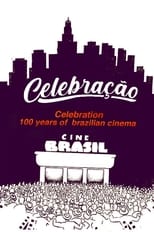
Title: Celebração - 100 Anos do Cinema Nacional
Character: Self
Released: January 1, 1997
Type: Movie
"Portraits and excerpts from Brazilian films from all times. Actors, directors and images that affirm cinema."

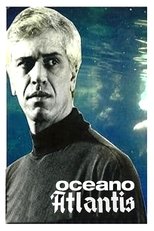
Title: Oceano Atlantis
Released: January 2, 1993
Type: Movie
In a Rio de Janeiro after the catastrophe, only the hills were immune to a flood that left the asphalt submerged. While the Navy is rationing provisions and some are sacrificing themselves to avoid starvation, a diver goes to the bottom of the sea and finds a submerged civilization there.


Title: Leila Diniz
Released: November 1, 1987
Type: Movie
The life of Brazilian actress Leila Diniz.


Title: After Eight... Forever
Character: Pai
Released: March 11, 1987
Type: Movie
Tereza tries to leave her past and forge her own destiny and happiness by going through several affairs.

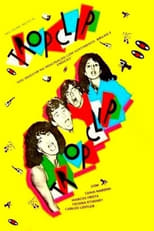
Title: Tropclip
Character: Pai de Krishna
Released: July 29, 1985
Type: Movie
Enterprising youths live many adventures when they decide to start a business specializing in making video clips for rock groups.

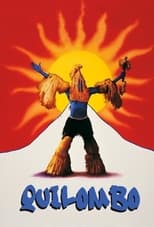
Title: Quilombo
Character: Blaer
Released: June 3, 1984
Type: Movie
Quilombo dos Palmares was a real-life democratic society, created in Brazil in the 17th century. This incredibly elaborate (and surprisingly little-known) film traces the origins of Quilombo, which began as a community of freed slaves. The colony becomes a safe harbor for other outcasts of the world, including Indians and Jews. Ganga Zumba (Toni Tornado) becomes president of Quilombo, the first freely elected leader in the Western Hemisphere. Naturally, the ruling Portuguese want to subjugate Zumba and his followers, but the Quilombians are ready for their would-be oppressors. The end of this Brave New World is not pleasant, but the followers of Zumba and his ideals take to the hills, where they honor his memory to this day. Writer/director Carlos Diegues takes every available opportunity to compare the rise and fall of Quilombo with the state of affairs in modern-day Brazil.

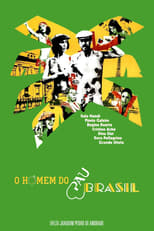
Title: The Brazilwood Man
Character: Cristo
Released: February 22, 1982
Type: Movie
Fantasy comedy about Brazilian writer Oswald de Andrade, one of the most important icons of Modernism in Brazil. In the film, Oswald is played by two actors: Ítala Nandi, as his feminine anima, and Flávio Galvão, as the masculine half.

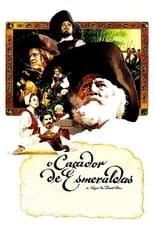
Title: O Caçador de Esmeraldas
Character: Borba Gato
Released: May 25, 1979
Type: Movie
The life of Fernão Dias, a 17th century Brazilian frontiersman known as "the Emerald Hunter".

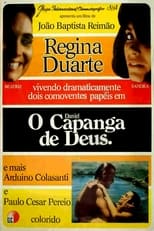

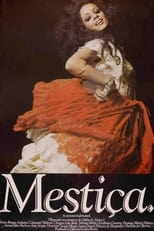


Title: Os Homens Que eu Tive
Character: Peter
Released: May 25, 1973
Type: Movie
Married woman only feels well when she's in love. In search of a ravishing love, she has many love affairs, with her husband's consent.



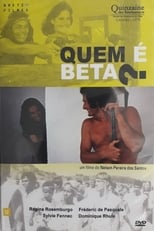
Title: Who Is Beta?
Released: April 11, 1972
Type: Movie
The critical success in France of How Tasty Was My Little Frenchman made possible dos Santos’ delirious science-fiction vision of free love in a post-apocalyptic wilderness besieged by flesh hungry zombies contaminated by an unnamed nuclear attack. Who is Beta? follows two statuesque survivors drawn irresistibly together only to be entranced by the arrival and sudden disappearance of a third, the bewitching raven haired Beta. With its cartoon-like depiction of extreme violence and desire, Who is Beta? offers a heady Pop-infused companion to Hunger for Love. Yet beneath its giddy play of surfaces, dos Santos' underappreciated film gradually reveals a darkly ambiguous metaphoric dimension. -Harvard Film Archive

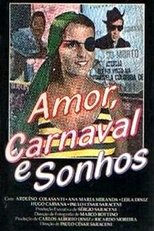
Title: Love, Carnival and Dreams
Character: Tristão/Oxóssi
Released: February 11, 1972
Type: Movie
On Carnival's eve, girl dreams of a man to stay with her during these four days. She meets a photographer, with whom she has an affair.

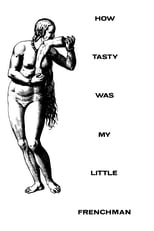
Title: How Tasty Was My Little Frenchman
Character: Francês
Released: June 1, 1971
Type: Movie
Brazil, 1594. The Tupinambás natives are friends of the French and their enemies are the Tupiniquins, friends of the Portuguese. A Frenchman is captured by the Tupinambás, and in spite of his trial to convince them that he is French, they believe he is Portuguese. The Frenchman becomes their slave, and maritally lives with Seboipepe.


Title: Mãos Vazias
Character: Mário
Released: January 1, 1971
Type: Movie
In a small town in the State of Minas Gerais, Brazil, a woman rebels against local morality after her child dies, with tragic results.

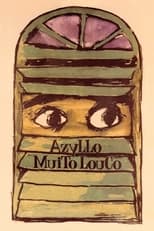
Title: The Alienist
Character: Porfírio
Released: September 21, 1970
Type: Movie
Father Simão Bacamarte arrives in the small town of Serafim to investigate a certain phenomenon of madness.

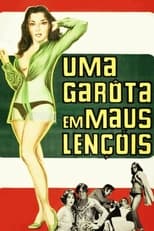

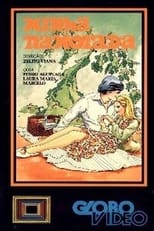
Title: Minha Namorada
Released: January 1, 1970
Type: Movie
Middle-class teenage girl has a serious boyfriend that her parents approve of. Suddenly, she meets another boy with whom she is shown to have a greater identification.


Title: Brazil Year 2000
Released: November 21, 1969
Type: Movie
Year 2000. Brazil was partially devastated by the Third World War. An immigrant family arrives in a small town, which they call "I Forgot." The trio is recruited by an indigenist to pretend to be indigenous during the visit of a general. In the dilemma of integrating into the system or preserving individual freedom, the family moves toward disintegration as the city prepares to launch a space rocket.

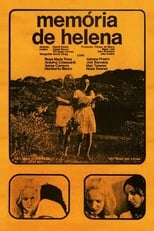
Title: Memória de Helena
Character: Renato
Released: November 19, 1969
Type: Movie
Couple whose marriage is at stake delve into the past, with the help of a diary and some home movies. In these movies, Helena, the woman's suicidal friend, has an important role.

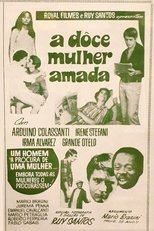

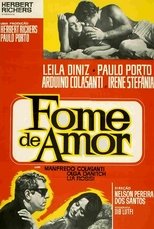
Title: Hunger for Love
Character: Felipe
Released: October 15, 1968
Type: Movie
An extended research tour of US university film programs introduced dos Santos to the American avant-garde filmmakers, among them Jonas Mekas and Stan Brakhage, who would directly inspire his formally radical adaptation of an allegorical short story about adultery and colonialism by Guilherme de Figueiredo. Filmed in both Manhattan and Brazil and set against the background of the Vietnam War and its protests, Hunger for Love uses a rigorously abstract soundtrack and narrative structure to evoke the acute paranoia of the period building up to the December 1968 military coup that tipped Brazil perilously close to a conservative dictatorship. With its harsh critique of the decadent tendencies of the Sixties counterculture, Hunger for Love offers a key expression of the self-consciously “ideological” phase of Cinema Novo. -Harvard Film Archive

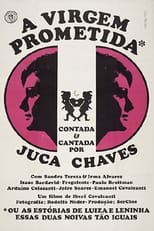

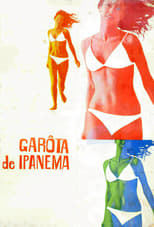
Title: The Girl from Ipanema
Character: Pedro Paulo
Released: May 26, 1967
Type: Movie
Chronicles the life of a 17 year-old girl living in the upper-class Rio de Janeiro neighbourhood of Ipanema. Márcia lives a life of parties and spend her days among bohemians, musicians and intellectuals. While seeming happy in the outside, she's extremely anguished inside. Based on the famous song by Antonio Carlos Jobim and Vinicius de Moraes.

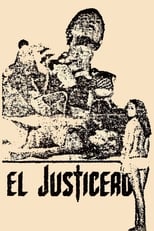
Title: El Justicero
Released: April 13, 1967
Type: Movie
A shockingly irreverent follow-up to the rural austerity of Barren Lives, dos Santos’ Godardian social satire owes more than a nod to the self-conscious antics of the French New Wave. The pampered son of a general, El Justicero is a hipster playboy who fancies himself a James Bond/Jean Paul Sartre urban hero. “Archetypical” yet “full of contradictions,” he sees that justice is achieved for the disadvantaged while taking advantage of certain bourgeois perks. His exploits are closely followed and eventually directed by his biographer who decides a film is not only more lucrative than a book, but it gives him the luxury of reviewing previous scenes. Unlike Bond, El Jus eventually experiences an awakening which threatens to compromise the entertainment value and glamour of his life story. - Harvard Film Archive

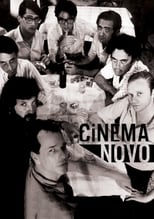
Title: Improvised and Purposeful: Cinema Novo
Character: Self
Released: January 1, 1967
Type: Movie
Originally produced for German TV, Improvised and Purposeful is a firsthand look at the "Cinema Novo" movement (otherwise known as the 'Brazilian New Wave'). Director Joaquim Pedro de Andrade focuses on six Cinema Novo filmmakers working in Rio in 1967.
